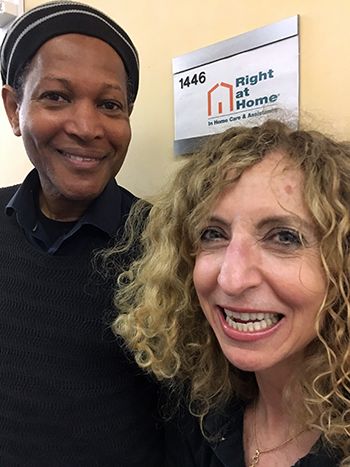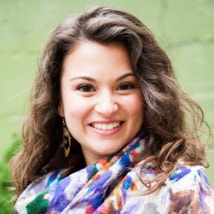Don’t Make Assumptions. Listen Mindfully and Be Inclusive
LGBT Elder-Friendly Senior Home Care Agency in New York City
Joyce Barocas and her husband Albert Eshoo own a home care agency, Right at Home of Lower Manhattan. They decided to team up with SAGECare in 2017 to create a more welcoming community for LGBT seniors.
SAGE, which stands for Services & Advocacy for GLBT Elders, is one of the country’s oldest and largest nonprofits dedicated to improving the lives of LGBT seniors. In 2010, the federal government turned to SAGE for help to create a comprehensive national cultural competency training program for the National Aging Network. The partnership resulted in the creation of SAGECare, which focuses on training to help service providers better understand the unique needs and concerns of LGBT elders.
Barocas learned about SAGECare in a conference. “They talked about how even though New York City is pretty LGBT-friendly, you never know where discrimination might be lurking, especially within the senior community,” Barocas recalls. “There is clearly a need for this kind of sensitivity training, and I don’t think many other agencies are doing this yet. We like to think that we’re ahead of the curve!”
Today, 30 percent of Barocas and Eshoo’s staff members have completed the SAGECare training; Right at Home of Lower Manhattan has also earned the bronze level certification from SAGE.
Benefits of Being SAGECare-Certified
SAGECare recognizes that LGBT older adults may interact differently with providers as a result of their histories, personal experiences and life narratives— which are often different from non-LGBT people. The SAGECare training aims to create more empathy for LGBT individuals, providing caregivers with more compassionate and person-centered care for LGBT and other diverse communities.
“SAGECare offers different types of training; we decided to do the online one, so our caregivers could move at their own pace,” says Barocas. “It provides clarity about a sometimes complicated topic and gives our caregivers a stronger sense of security when they are out in the field.”
The training that Barocas had her staff complete explains and defines a host of topics, including the differences among gender identity, sexual orientation and gender expression, as well as the types of discrimination the LGBT community can face. In addition to the written content that is part of the online course, SAGECare also integrates video clips of real people into the training to help caregivers better connect to and understand different aspects of the LGBT experience.
“It really helped us,” says Barocas. “I think you don’t realize how people are discriminated against, especially because of how widely accepted being openly gay seems to be now. But many of the older LGBT people we serve were forced to be silent about who they were for so many years— a sense of distrust and fear is just ingrained in them.”
According to Barocas, one of the biggest takeaways from the course is that it taught her and her team of caregivers not to ask questions, but rather to let the client lead you where they are comfortable going.
“We learned not to make any assumptions, to be mindful of maintaining a client’s privacy, and to be inclusive,” says Barocas. “Unfortunately, there will always be discrimination, but my hope is that with time, the LGBT community becomes more accepted and life is easier for them. We can’t move backwards at this point; we have to keep making progress in the right direction.”
Caregiving in the LGBT Community

Jack Clayter has been working as a caregiver for about 35 years and loves being able to help make his clients’ lives better. And part of what he brings to the job is the ability to come into their homes without passing judgment on the way they live their lives.
Although Jack acknowledges that he grew up in a very open-minded home, he understands that many people carry a lot of prejudice with them, especially when it comes to the LGBT community. When his employers Barocas and Eshoo introduced the SAGECare training to the office, he welcomed the offer and is among the 30 percent of caregivers who have completed the program.
“I see no difference in treating heterosexual clients or homosexual clients,” says Jack. “Our interactions are all the same, their needs are the same, and the side effects of certain illnesses are the same—the aging body doesn’t really discriminate, so why should I? I’m just there to provide care for them.”




